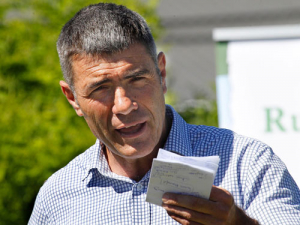Opposition primary industries spokesman Nathan Guy is welcoming the decision to cull cattle infected with the Mycoplasma bovis disease.
He says this will bring some welcome relief to affected farmers but questions whether the Government is fully committed to eradication.
“Yesterday the Minister, Damien O’Connor, told Parliament that Cabinet is still to decide if eradication is possible – or if it’s even economically viable – which is nothing but a ‘get out of jail free’ card so the Government doesn’t have to commit to any further funding,” says Guy.
Guy says the $85 million package - that includes $11 million from industry - will go some way toward culling the 22 herds.
But it’s also needed to cover ongoing operational costs, including some feed and compensation costs.
“While this gives certainty to those individual farmers, this is going to be a stressful time as they see their animals trucked off for slaughter, and I feel for them.
“Many will have spent a lifetime investing in the best animal genetics and also have a stand down period before they can purchase replacement stock and get back farming again.
“I acknowledge the work of the Rural Support Trust and banks, who will play a very important role in supporting these farmers through this soul-destroying period.”
Guy wants the Government to be fair and fast with future compensation claims.
“I’m also calling on the Minister to release the tracing report that is currently sitting on his desk. My pick is that it will be inconclusive as to how Micoplasma bovis got here – tracing the origins of this disease will be a bit like trying to find a needle in a haystack,” Guy says.











